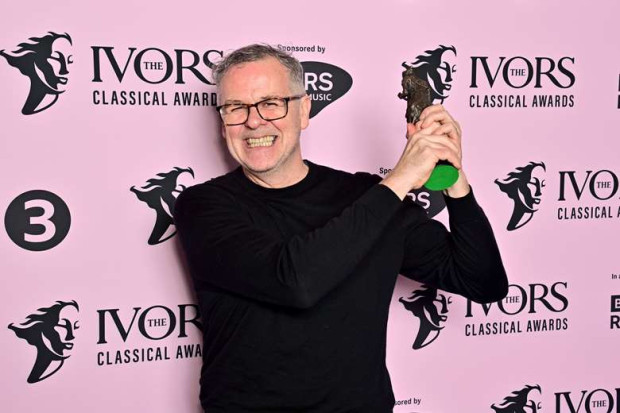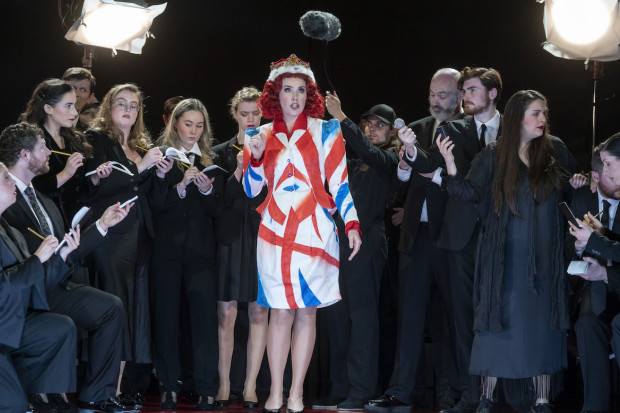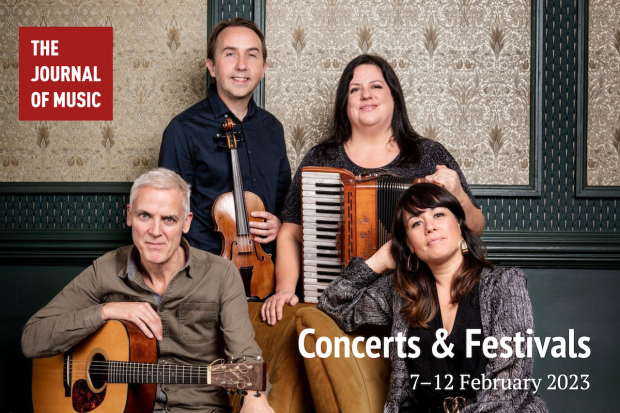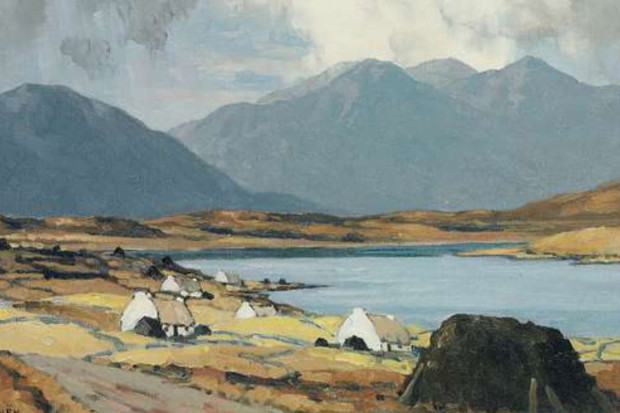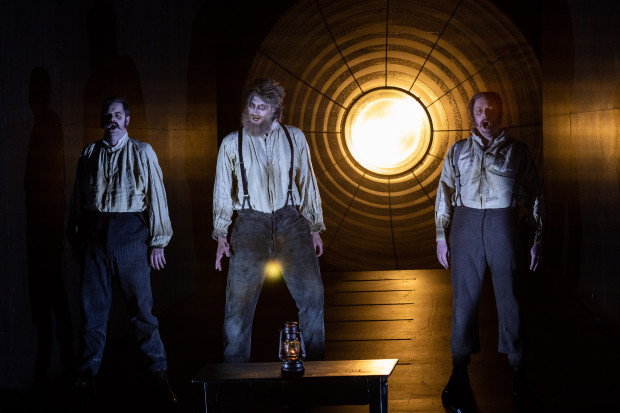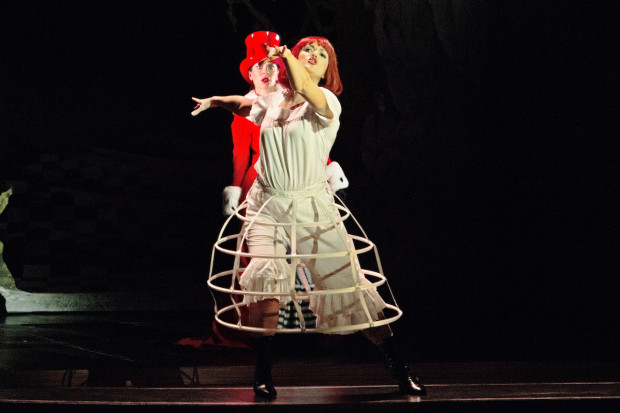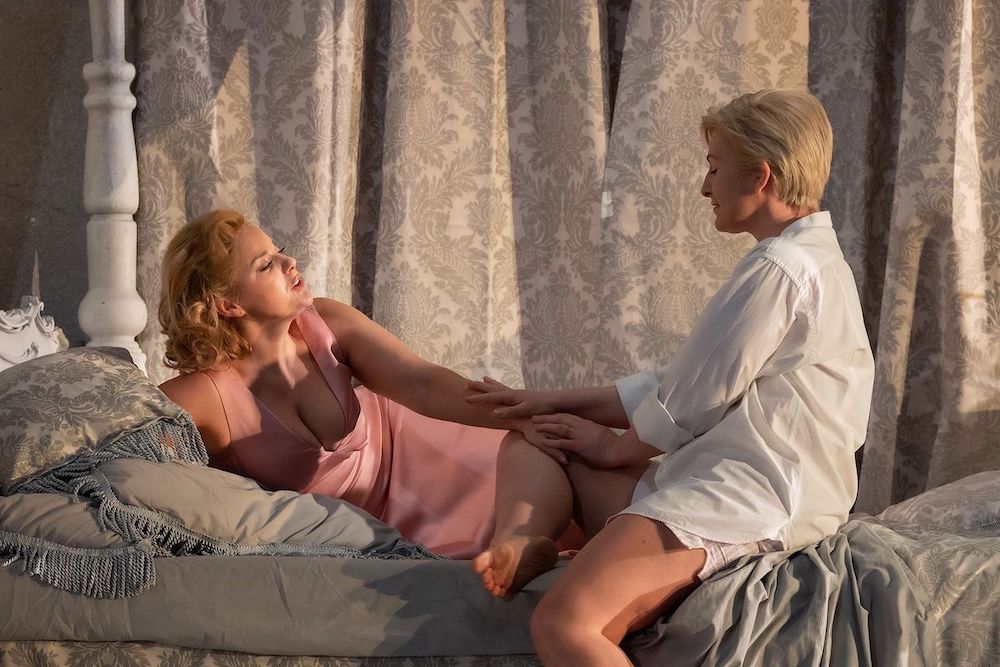
Celine Byrne and Paula Murrihy in 'Der Rosenkavalier' (Photo: Pat Redmond)
Love, Lust and the Passing of Time
You do have to hand it to Irish National Opera: just a few months after successfully staging one of their most ambitious productions to date in Rossini’s William Tell, here they were back at it again with a three-and-a-half hour production, Richard Strauss’ Der Rosenkavalier, this time featuring a stellar cast that included three of Ireland’s most internationally acclaimed female singers: Celine Byrne, Paula Murrihy and Claudia Boyle.
Hugo von Hofmannsthal’s libretto is a delicate balancing act between the opposing dynamics associated with its two leading characters; on the one hand there is the farcical element provided by the lecherous but high comedy Baron Ochs (in INO’s production, bass Andreas Bauer Kanabas) who rampages through the opera in pursuit of lusty conquest. On the other hand, Ochs’ buffoonery is counterbalanced by a reflection on more weighty themes (aging, patriarchy, the passing of time), mainly conducted through the figure of the Marschallin (Byrne), the beautiful and still young Princess of Werdenberg. Although the relationship between the dashing youths Octavian (Murrihy) and Sophie von Faninal (Boyle) ostensibly propels the story, both of them are relegated to being the second pair whose love is little more than plot fodder for the dominant energies of the Baron and the Marschallin.
Bourgeois trappings
In bringing out the farcical element, director Bruno Ravella could hardly have coordinated a better production. The second act was a tour de force from start to finish that not only unleashed Ochs’ lecherousness at full tilt but also exposed the shallow pretensions of the Faninal family by having Sophie posing with an artist’s palette surrounded with musical instruments – all of which were soon dispensed with as their petty bourgeois trappings wilted under the sustained aristocratic sleaze of the Baron. Likewise, in the third act, Ochs’ unease at the uncanny resemblance between ‘Mariandel’ and his arch-rival Octavian was nicely done with inquisitive faces appearing from trap doors at all angles while his libidinous past was more than hinted at with the chorus of pregnant peasant girls.
As regards some of the more profound themes, the production was perhaps not quite as successful. The main issue here revolved around the portrayal of the Marschallin who, although much older than the 17-year old Octavian, is still supposed to be a relatively young woman with enough vigorous sex appeal to excite the younger man. It is the realisation that her youth, and the accompanying loss of vitality, are gradually slipping away that forms one of the opera’s most enduring themes. Byrne would have seemed like the perfect fit for this role, but for some reason the production team chose to cast her as a much older and rather less dynamic figure. This was especially the case in the first act where she was restricted to lying, standing or sitting in largely static poses. The stately and dignified portrayal worked much better in Act 3 when she generously released Octavian to the younger Sophie, but the fact that she had adopted this demeanour from Act 1 somewhat impeded the development of her character from carefree cougar at the outset to the opera’s moral conscience at the finish.
Irish talent
With a cast featuring some of the best Irish talent, the standard of singing was excellent as one would expect. For me, Boyle was the standout of the leading female trio bringing a new, highly strung dynamic to the character of Sophie along with excellent German diction. Also exemplary in this respect was Murrihy as Octavian who effortlessly navigated the different German idioms between her noble main character and the more earthy Mariandel. Byrne’s voice may not quite have the dramatic power to fully round out the Marschallin but she did some wonderful things in the more reflective moments such as the vibrato-less high G that she managed to pull off at the close of Act 1.
The slapstick antics of the Baron were brilliantly delivered by Bauer Kanabas whose energy never dipped throughout the performance. Of the remaining cast, two singers in particular stood out. Although it is nothing more than a cameo, César Cortés’ performance of the famed Italian aria ‘Di rigori armato il seno’ may have been the single most perfect moment in the entire production while Rachel Croash was outstanding as Sophie’s ditzy companion Marianne.
The score of Der Rosenkavalier is tricky and the orchestra under INO artistic director Fergus Sheil performed very well, particularly considering that the string section only constituted about sixty percent of what Strauss’ score asks for – a restriction undoubtedly necessitated by the size of the Bord Gáis Theatre’s orchestra pit. This somewhat tempered the heady eroticism of the music and some of the faster sections did not quite have the required zip; the overture for instance, which is supposed to suggest a night of passionate lovemaking, was a little on the ponderous side, but these are minor criticisms.
Gary McCann’s set designs and costumes were one of the production’s strongest aspects, placing the drama somewhere in the first half of the twentieth century with hints of imperial Vienna in the blown-up volutes in Act 1 that jutted out from the backdrop like pieces of pavlova.
Perhaps the most gratifying aspect for INO was that the production managed to pull in a very healthy crowd. It goes to show that the top Irish singers do have their own domestic fan base that is only likely to grow if INO can keep giving them exposure with high-quality, large-scale productions such as this one.
There are two remaining performances of Irish National Opera’s Der Rosenkavalier at the Bord Gáis Energy Theatre in Dublin – tonight (9 March) and 11 March. For tickets, visit www.irishnationalopera.ie.
Subscribe to our newsletter.
Published on 9 March 2023
Adrian Smith is Lecturer in Musicology at TU Dublin Conservatoire.












